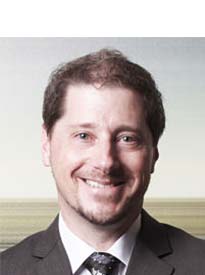
We’re now living in a world in which Twitter has become the go-to source for breaking news. What has been referred to as the “digital soapbox” has shaped governments, products and stock markets. In fact, 140 characters and a few hashtags are all that are needed to make or break a company, an economy, a person, or even rational thought for that matter. In this type of environment, the value of providing professional financial advice is more important than it has ever been.
Bandwagons were not invented with advent of social media. Some of us remember the dot-com craze in the late 1990s and how it drove stock markets and influenced investments — to the ultimate pain and suffering of millions. With no viable business in sight, and in many cases with no product or even a vision, Internet startups were attracting billions of dollars in investment capital.
The opposite of bandwagons has also been around for generations. Remember Y2K and the havoc it wreaked? Exciting visions of a non-existent future share much in common with those of a coming apocalypse: They both put money in motion — albeit in different directions. Today, we’re seeing asset bubbles at play in the real estate market and with the rise of cryptocurrencies — both having had investors ready to climb aboard for the ride.
This, combined with the reality that it’s often difficult to distinguish fact from fiction nowadays, means that consumers need a reliable voice of reason more than ever. Specifically, they need someone in their corner who can strip out the hype, guide them away from the edge and provide unbiased wisdom and sound advice. This is especially the case in an environment in which the mere utterance of the phrase “fake news” can turn facts into fiction instantly and the notion of “alternative facts” can do the opposite.
That’s why there has never been a more critical need for professional financial advice. In fact, being a professional financial advisor or financial planner can be more rewarding than ever during times like these. Many clients — and some advisors, for that matter — often fall prey to what behavioural scientists refer to as the “bandwagon effect.” The bandwagon effect can be described as a social phenomenon of wanting to be part of the majority even if it means going against your own principles or beliefs. Another term for this is “collective irrationality.”
When the directional current is so strong and panic sets in — either to get in on the winning or to avoid losing — it takes real discipline to stem the tide, stay true to your principles and reintroduce rational sound planning and advice.
Professional financial planners and advisors who have a good understanding of human behaviour and who are strong communicators can take an inclination to make what could become a catastrophic decision and turn it into a “moment of truth.” In times like these, professional, unbiased, rational advice can make the professional planner a genuine saviour for their clients. These are the moments when all of the training and experience of what it means to be a professional take centre stage — and when client loyalty and trust are solidified or lost.
When clients come calling ready to jump ship at the first sign of rough waters or set sail on the latest craze, having the ability to recognize and understand biases as well as persuade a client from making disastrous financial decisions for the wrong reasons are worth more than all the technical knowledge in the world. In fact, such skills not only do much more to contribute to a client’s long-term financial health, they solidify a client’s trust for the long term.
